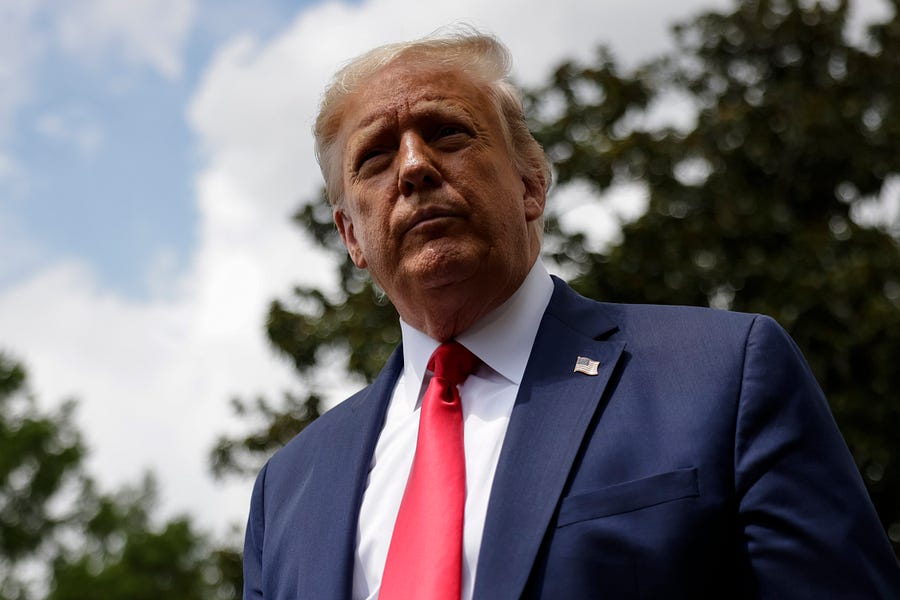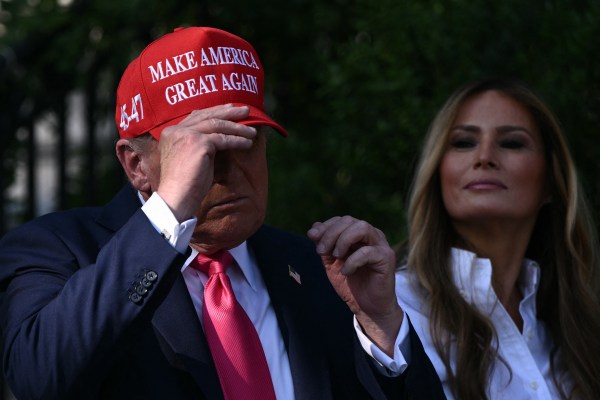Last month, Donald Trump decided his campaign needed a shot in the arm. Badly trailing in the polls against Joe Biden, Trump was looking for a way to recapture the support he’d been hemorrhaging among white suburban women—a cohort that is credited with helping send him to the White House in 2016, drove the blue wave election of 2018, and doesn’t seem inclined to return to the GOP fold this year either.
How to reach these people? It was a little late in the game to change the things that had driven them away in the first place: The unpresidential behavior, the smashmouth vulgarity and controversy, the demagoguery and insults and racial grievance. But what if there was another way? A way, perhaps, to get the suburban women themselves in on a little grievance-based action?
This seems to have been the thought process that led Trump to announce he was revoking an Obama-era housing rule which, in his telling, was part of Obama’s—and now Biden’s—plan to “destroy the suburbs” with a dreaded influx of the urban poor.
On the heels of Biden’s announcement that Kamala Harris would be his running mate, Trump returned to the talking point this week, adding a (misspelled) dig at Sen. Cory Booker for good measure:
The rule, known as Affirmatively Furthering Fair Housing, was intended to strengthen enforcement of the Fair Housing sections of the 1968 Civil Rights Act by creating opportunities for minorities to move into America’s still largely white suburbs. The rule required jurisdictions that receive federal funds for housing or urban development to assess whether they have patterns of housing discrimination in their communities, and if so to try to find ways to rectify it. In practice, that would likely mean loosening some local zoning restrictions to allow for the construction of some denser and more affordable housing—in a word, apartments—in some jurisdictions that currently forbid them.
The recent change to the regulation isn’t as big as Trump is making it out to be—in fact, the Trump administration began to quietly defang the rule by doing away with its grading tool and moving back its reporting deadlines all the way back in January 2018. But with the Biden campaign pledging to bring it back, Trump has seized on the opportunity to try to turn it into a major campaign issue.
Will it work? Pollsters are skeptical.
“The trend of Republican weakness in the suburbs has continued based on current polling,” Republican pollster Whit Ayres told The Dispatch. “The only issues white suburban women really care about today are the coronavirus pandemic and its resulting effects on our economy and educational system.”
Opposition to affirmative action in housing markets isn’t just an artifact of the Trump era, of course. Republicans have long looked with suspicion on heavy-handed federal intrusions into such local matters, arguing they tend to be ineffective boondoggles of government micromanagement that create mountains of red tape for local governments to slog through and don’t actually do much to help desegregate housing. Further, they’ve long argued against the concept of disparate impact in housing—the notion that race-neutral zoning or renting practices that result in outcomes like largely segregated neighborhoods are de facto segregationist and should be treated by law as such. Those sorts of outcomes, they assert, can’t possibly be controlled away by public policy—not without making the federal bureaucracy dramatically nosier and more powerful.
Leftists, of course, have always suspected that this sort of argument is a convenient lie. Nobody, they maintain, is actually that enthusiastic about laissez-faire government policy—rather, laissez-faire arguments are just the useful ones to reach for when you’re the party whose interests are served by government inaction rather than action.
This is what makes the rollout of the Trump rule particularly interesting. In officially announcing the change, Housing and Urban Development Secretary Ben Carson leaned heavily on those tried-and-true arguments. The “complicated, costly, and ineffective” rule, he said, was “unworkable and ultimately a waste of time for localities to comply with, too often resulting in funds being steered away from communities that need them most.”
Trump’s comments, by contrast, were exactly the sort of argument of naked factional interest leftists see lurking in the subtext of those platitudes. It isn’t that the rule wouldn’t work, but that it would work too well, and that a bunch of riffraff would get to invade your suburbs as a result. And are you gonna stand for that?
We’ll see how the suburbanites feel about it come November.
“Most suburbs have become far more demographically diverse,” Ayres said. “So to the extent that racial issues penetrate the dominance of the pandemic and its effects, it’s that white suburban women do not want to be associated with any positions perceived to be racially offensive.”
Also at The Dispatch, Ryan Streeter explains what Trump doesn’t get about the attitudes of suburbanites.
Photograph by Samuel Corum/Getty Images.






Please note that we at The Dispatch hold ourselves, our work, and our commenters to a higher standard than other places on the internet. We welcome comments that foster genuine debate or discussion—including comments critical of us or our work—but responses that include ad hominem attacks on fellow Dispatch members or are intended to stoke fear and anger may be moderated.
With your membership, you only have the ability to comment on The Morning Dispatch articles. Consider upgrading to join the conversation everywhere.